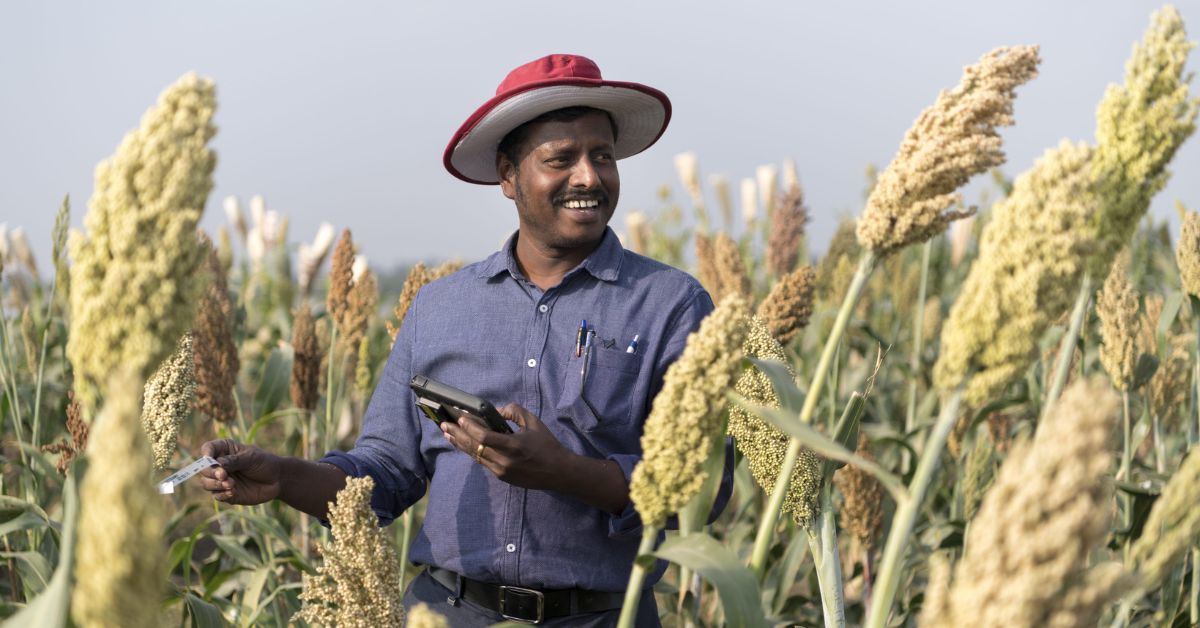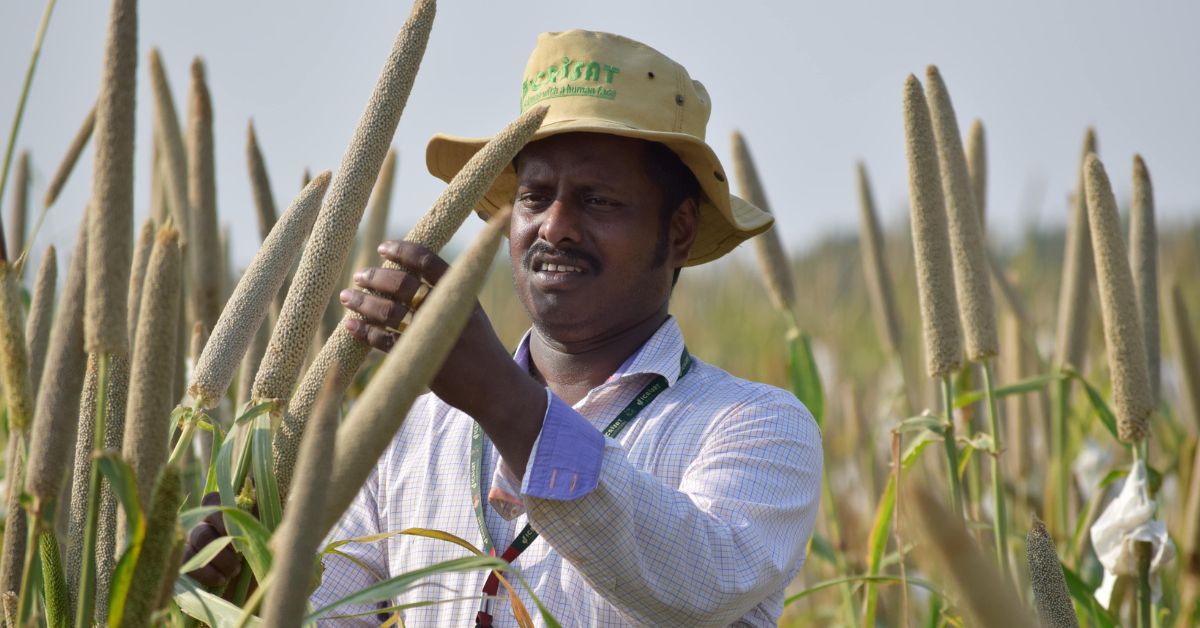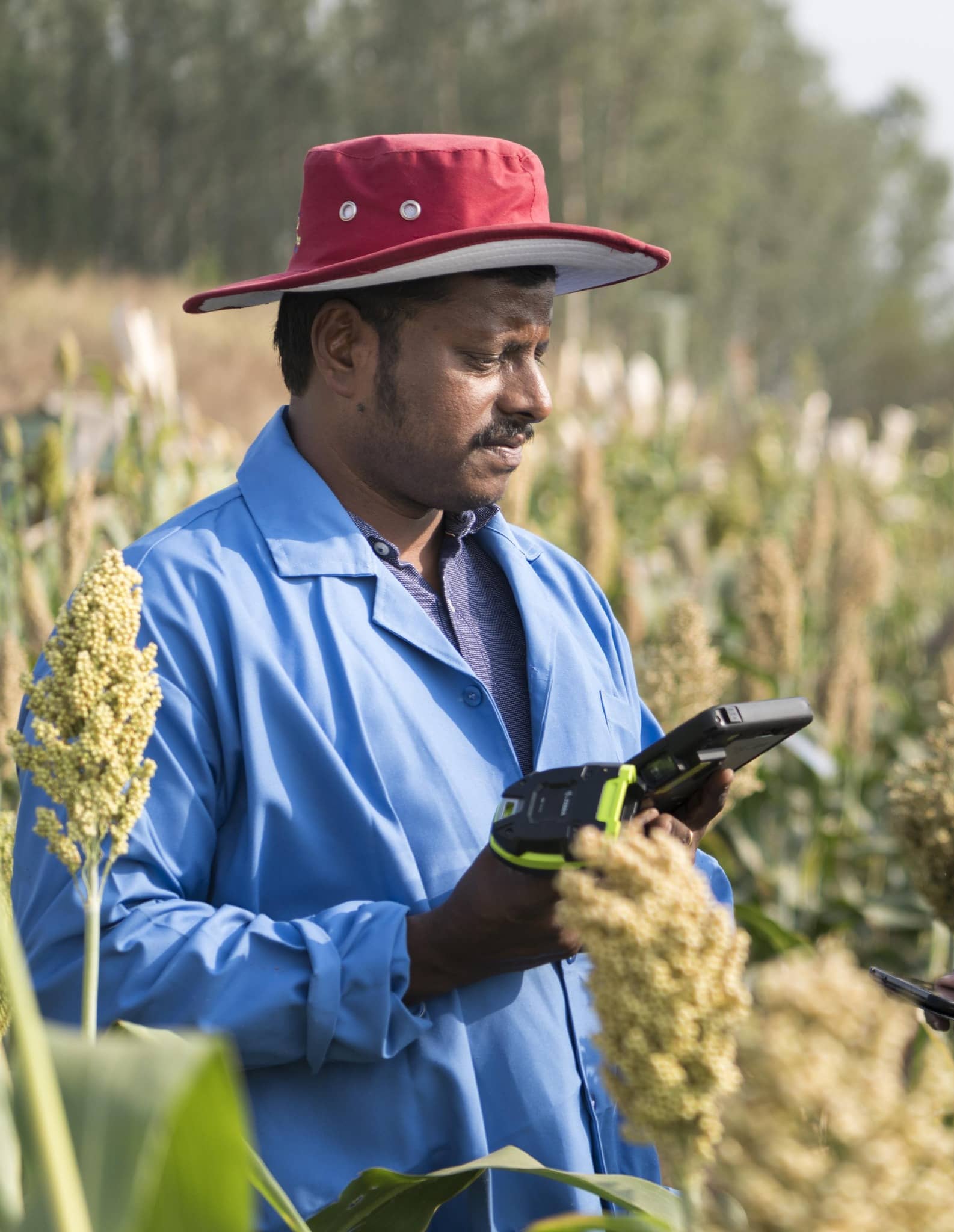Indian Scientist Wins Global Award for Creating World’s First Biofortified Pearl Millet
Dr Mahalingam Govindaraj has won the Norman E Borlaug Award for developing the world's first biofortified bajra variety called Dhanashakti, which is rich in nutrients.

Dr Mahalingam Govindaraj, an agricultural scientist has won the Norman E Borlaug Award for Field Research and Application 2022. This award is for his efforts to develop a biofortified pearl millet (bajra) that is rich in iron and zinc.
Dr Govindaraj is a Senior Scientist for Crop Development at HarvestPlus and the Alliance of Bioversity International and International Center for Tropical Agriculture (CIAT).
In 2014, he released Dhanashakti, which is the world’s first biofortified pearl millet.

Biofortification is a method of breeding crops to increase their micronutrient content. As per a statement by the World Food Prize Foundation, 200 grams of Dhanashakti provides women with more than 80 per cent of the recommended daily iron allowance, while regular bajra varieties only provide 20 per cent.
More than 120,000 farming households grow Dhanashakti in India today. He has been involved in developing more than ten high-iron and zinc pearl millet varieties. These varieties are also being grown in Kenya, Zimbabwe, Sudan, Niger, Nigeria and Senegal. It is estimated that by 2024, more than 9 million people in India will consume iron and rich bajra, leading to better nutrition.
He has created a cheap source of iron and zinc for the poor in India and Africa.

Reports claim that his work has improved nutrition and enhanced the livelihoods of small farmers.
Hailing from a farming family in Tamil Nadu, Dr Govindaraj’s love for farming started at a young age. He was a first-generation graduate.
“I was raised in the south of India where the majority of the crop was rice. My family had been farming for many years; I was the first in my family to go all the way through school and graduate from college. I loved studying science and felt drawn to researching how scientific methods could have a positive impact on agriculture. From the outset, I was fascinated by breeding and genetics and the possibilities of growing crops beyond rice, which could thrive in more challenging environments than the wetlands where I grew up,” said Dr Govindaraj to Krishak Jagat.
He got his Bachelor of Science degree from the Agricultural College and Research Institute, Killikulam, Tamil Nadu and Master of Science and Doctorate degrees in plant breeding and genetics from Tamil Nadu Agricultural University.
He worked as a CGIAR researcher at the International Crops Research Institute for the Semi-Arid Tropics (ICRISAT) from 2011 until 2021.
While working on Dhanashakti, he also convinced the Indian Council of Agriculture Research (ICAR) to include minimum iron and zinc standards in their national cultivar release policy.
Through his efforts, pearl millet became the first crop in which minimum levels of zinc and iron were mandated in 2018.
He says he is very happy to receive this award as Norman E Borlaug was a big influence on his work. “His work on the importance of local circumstances on major crops motivated my research from the very beginning. I was always very inspired by the quote from Norman E. Borlaug who said: ‘Food is the moral right of all who are born into this world’,” said Govindaraj to Krishak Jagat.
He now hopes to get nutrition security onto the world’s agenda.
“I’m delighted to receive this global award just ahead of the international year of millets (2023), as interventions like biofortified millet allow us to fill the gap between food and nutrition security,” said Govindaraj to Krishak Jagat.
He will receive the award on 19 October at the 2022 Norman E. Borlaug International Dialogue in Des Moines, Iowa.
Sources
‘Another reason to celebrate bajre ki roti: Indian scientist wins award for fortifying millet’ by Sayantan Bera for The Print, Published on 5 September, 2022
Edited by Yoshita Rao, Images Courtesy World Food Prize Foundation
If you found our stories insightful, informative, or even just enjoyable, we invite you to consider making a voluntary payment to support the work we do at The Better India. Your contribution helps us continue producing quality content that educates, inspires, and drives positive change.
Choose one of the payment options below for your contribution-
By paying for the stories you value, you directly contribute to sustaining our efforts focused on making a difference in the world. Together, let’s ensure that impactful stories continue to be told and shared, enriching lives and communities alike.
Thank you for your support. Here are some frequently asked questions you might find helpful to know why you are contributing?


This story made me
-
97
-
121
-
89
-
167












